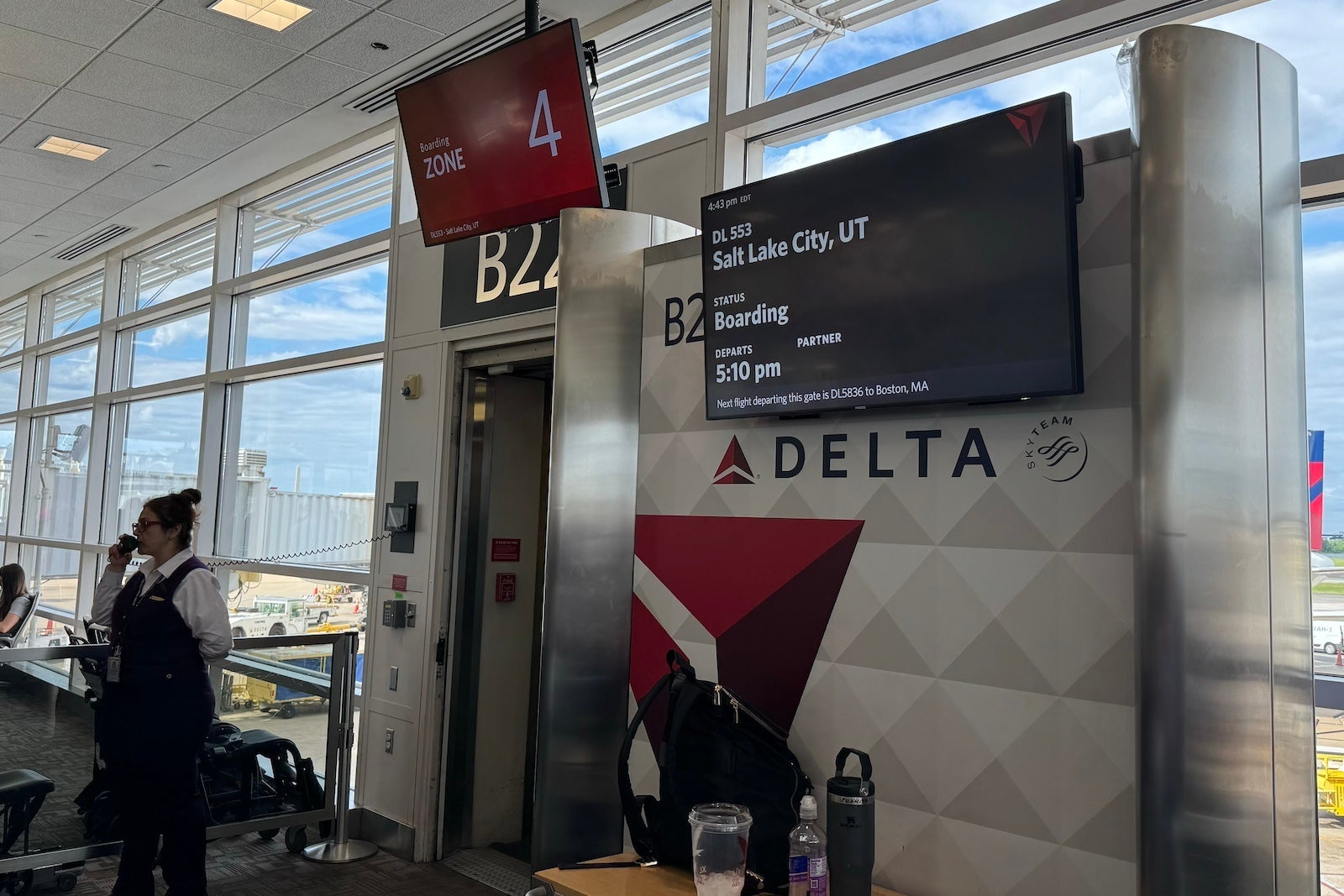Delta Air Lines is taking dynamic pricing to the next level. This week, the Atlanta-based carrier said it hopes to use artificial intelligence to influence pricing on about a fifth of its domestic flights by the end of 2025.
That would represent a sharp increase in the airline’s use of AI in dictating the price passengers pay to fly.
Last fall, Delta executives first revealed the company had begun using AI on a small sliver of its bookings; at the time, AI tools were only involved with about 1% of the airline’s network, leaders shared on Delta’s November 2024 investor day presentation.
Related: Best airlines report 2025: Delta tops TPG’s rankings for 7th straight year
AI is now behind pricing decisions on around 3% of Delta’s domestic network, President Glen Hauenstein shared Thursday on the company’s second-quarter earnings call.
“Our goal is to have about 20% by the end of the year,” Hauenstein told analysts Thursday, describing the initiative as part of a “testing phase” with AI travel firm Fetcherr.
“We like what we see. We like it a lot, and we’re continuing to roll it out,” Hauenstein added.
Major tech investments
Airlines have invested vast sums of money (billions of dollars, to be sure) in recent years upgrading both passenger-facing technology like booking channels and mobile apps.
Those investments have led to new products like better bag-tracking features that integrate with Apple AirTags, gate technology to stop line-cutters and better tools to help passengers rebook when flights are delayed or canceled.
Daily Newsletter
Reward your inbox with the TPG Daily newsletter
Join over 700,000 readers for breaking news, in-depth guides and exclusive deals from TPG’s experts
Read more: The best times to book cheap flights in 2025

Carriers have also upgraded their behind-the-scenes tech that powers the airline. And that includes their revenue management systems, which (among other things) are integral in setting fares and changing prices, constantly weighing factors like supply and demand for a particular flight.
The notion that carriers had become more sophisticated in their pricing tactics was front and center this spring, amid revelations that a handful of U.S. airlines — Delta among them — were occasionally charging passengers flying alone more than customers flying in groups of two or more. (A TPG report found that particular pricing tactic wasn’t widespread, but does happen.)
It’s not clear whether AI was, in any way, involved with those particular pricing strategies, but industry experts spoke to increasing sophistication on the airlines’ part: “With more advanced technology and with more passenger history, I think airlines are becoming better able at estimating passengers’ willingness to pay,” Kerry Tan, an expert in airline revenue management at Loyola University in Maryland, told me this spring.
On Delta’s investor day presentation last fall, Hauenstein said (PDF link) the use of AI would lead to a “full reengineering of how we price and how we will be pricing in the future.”
Related: Delta predicts Sky Club overcrowding will be ‘solved’ within next 2 years (mostly)
Bottom line
Incorporating AI into revenue management will presumably make airlines’ dynamic pricing tactics all the more robust — especially if Delta hits its goal of 20% usage by the end of the year.
“We’re continuing to roll it out, but we’re going to continue to take our time and make sure the rollout is successful as opposed to trying to rush it,” Hauenstein said Thursday.
A January survey from consulting giant KPMG found two-thirds of business leaders polled expected AI to fundamentally transform their business over the next two years.
Clearly, that includes the travel sector.
Related reading: